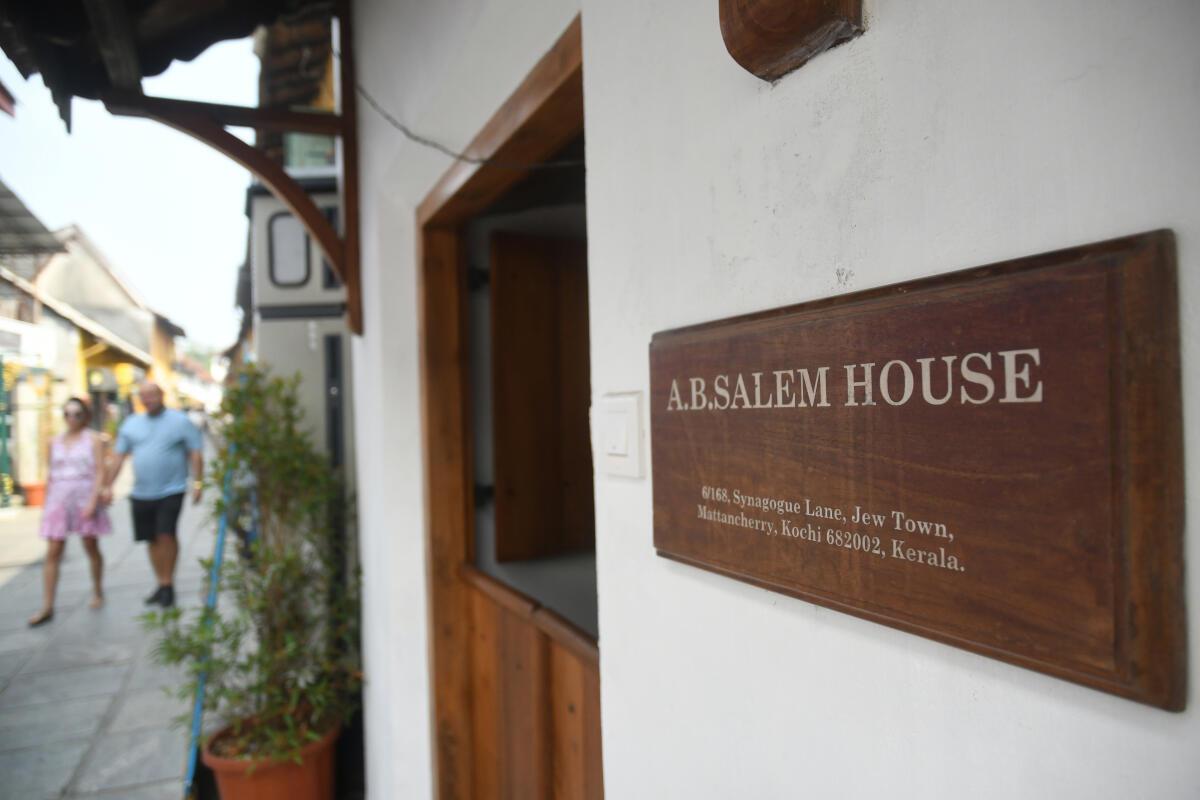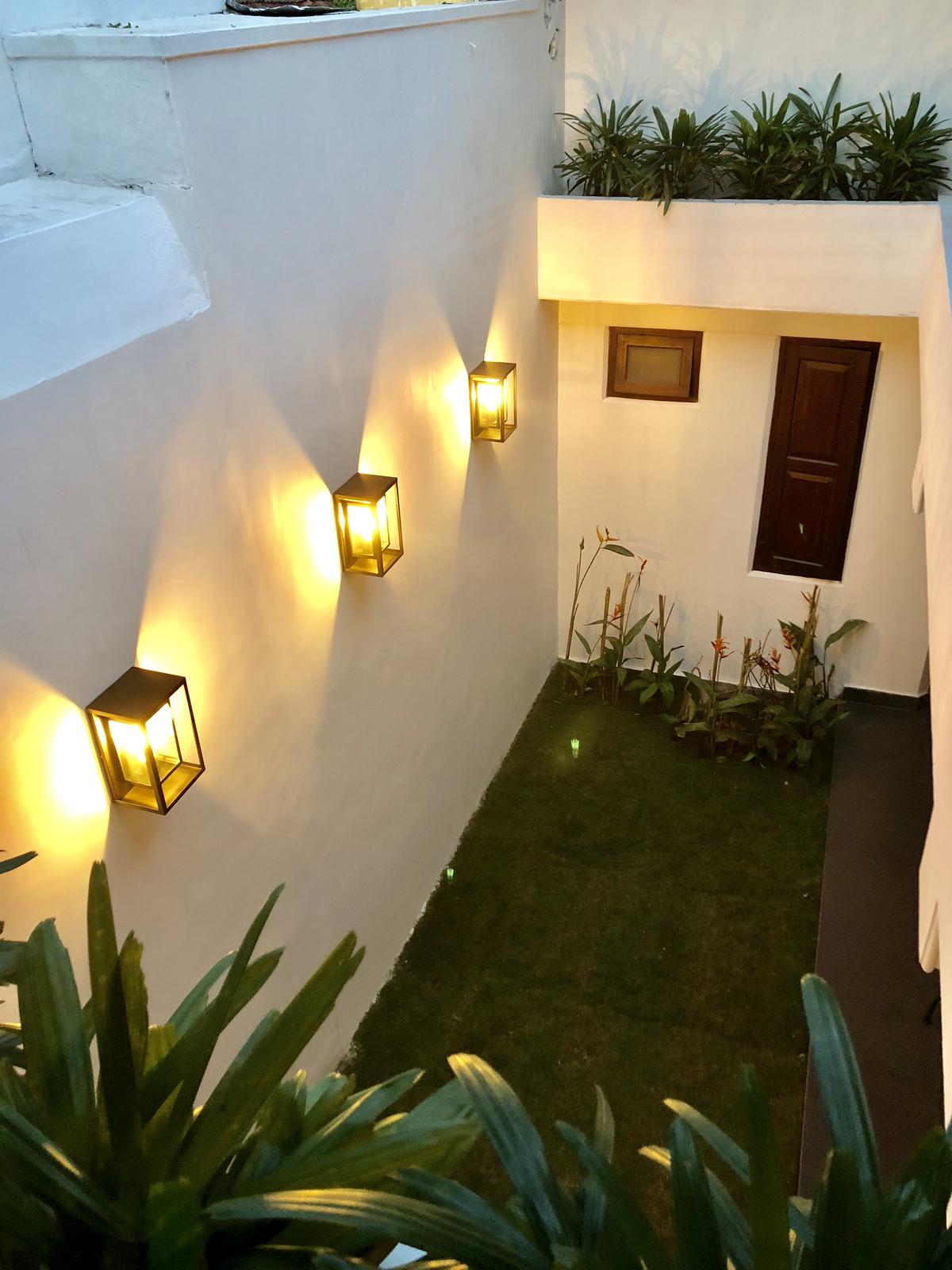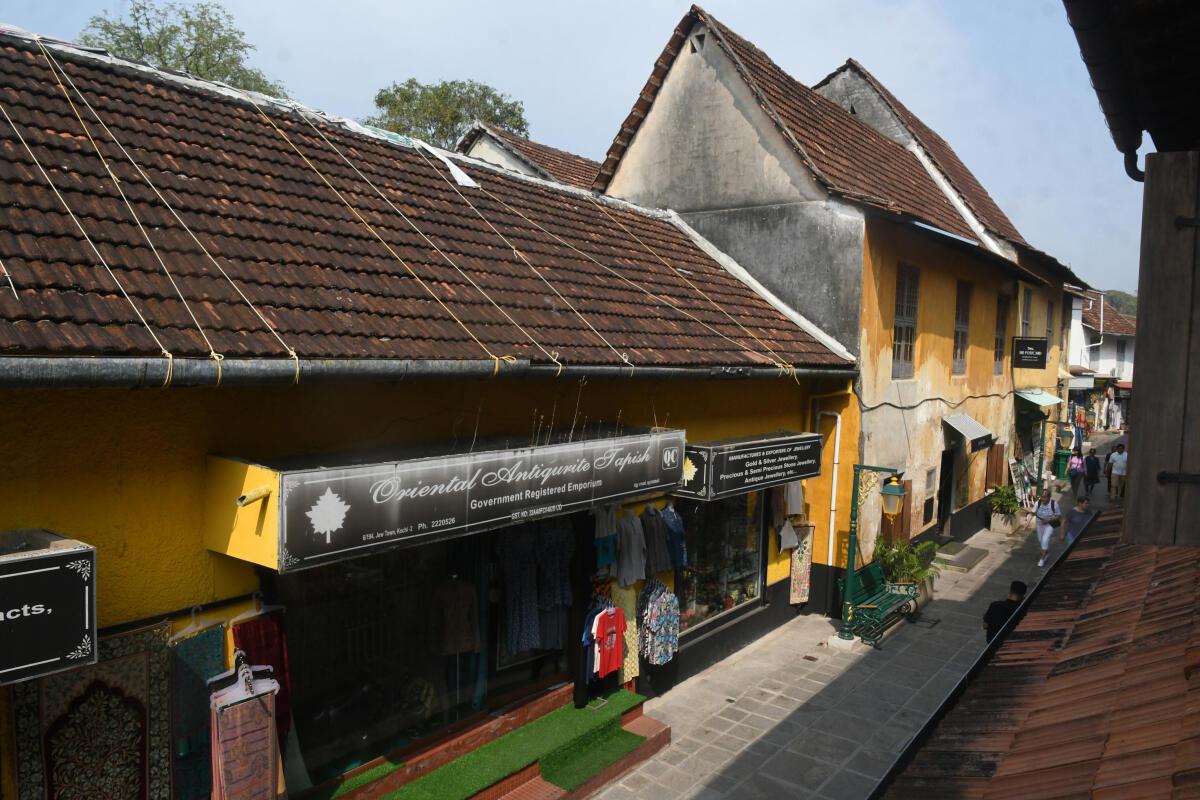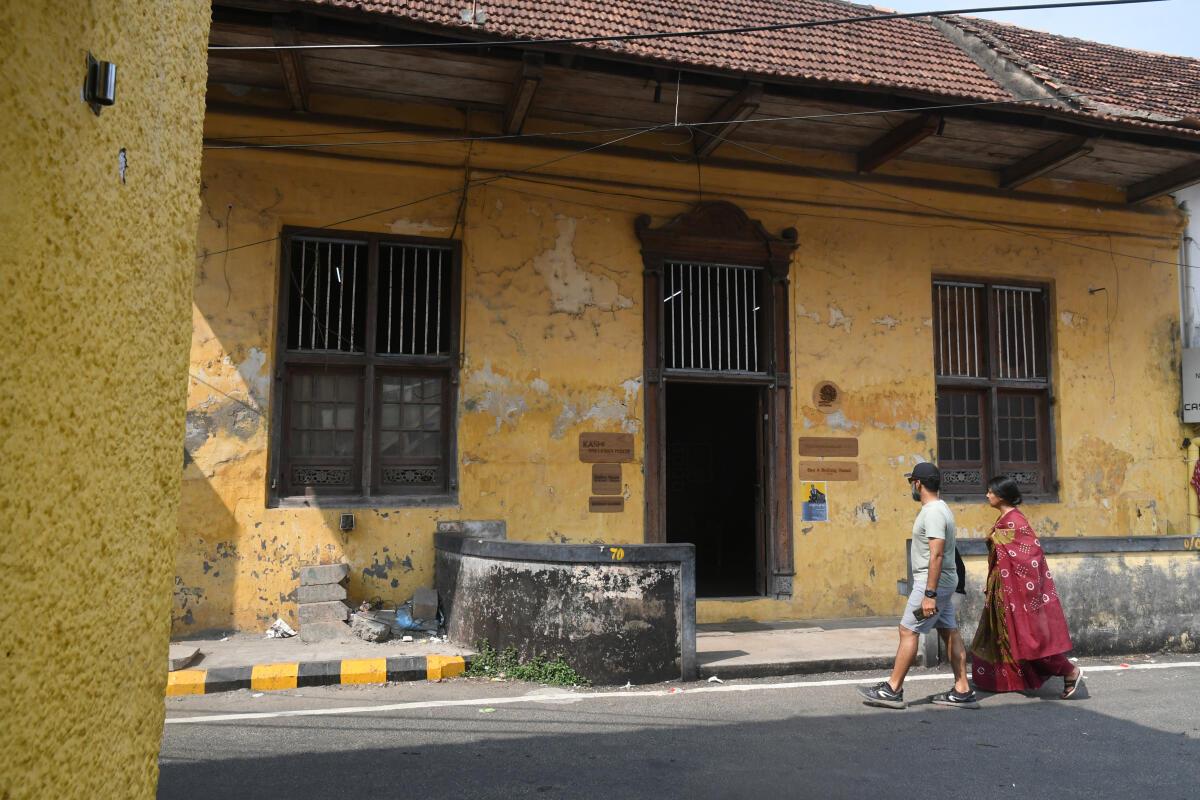The 350-year-old Abbey Salem House on Jew Street opened its doors to guests in the last week of January this year. It was the home of Abraham Ben Barak (1882–1967) alias AB Salem, a lawyer and activist who participated in India’s independence movement and was called the Jewish Gandhi. The heritage home now showcases the history along with its new look.
Two houses down, across from the Pardesi Synagogue, the 17th-century residence of Rabbi Rehabi Ezekiel will open as a boutique hotel called Ezekiel House by the middle of the year. Formerly called Leila Manzil, its most famous resident was Rabbi Ezekiel, a merchant who donated the famous hand-painted Chinese tiles to the Pardesi Synagogue at the end of the street.
Work has been going on since the pre-Covid days, at another Jewish home that once belonged to the late Elias Koder, a popular businessman. It is to open as an eight-room hotel by the middle of next year.
Sephardic Jews (known as pardesis or foreigners) came to India in 15 th and 16 th He was expelled from Spain after the centenary. A group moved to Cochin and settled around his synagogue. Synagogue Lane in the Jewish Town became a residential area and a thriving center until Jews began immigrating to Israel from 1958.
Change first came to the area in the early 90s with the purchase of properties by local businessmen. By the early 2000s, almost all houses except a few had changed ownership and were occupied by local businessmen. The boom in tourism led to renting out most of them to Kashmiri merchants, who converted them into retail shops for handicrafts. Large spice warehouses opened up selling antiques sourced from Kerala and the interior of South India. The Jewish town became a market for antiquities and spices. The iconic Pardesi Synagogue (closed on Saturdays) attracts a steady crowd of tourists, receiving around 1,000 visitors daily.
Synagogue Lane, Mattancherry | Photo Credit: Tulsi Kakkat
civil works
The current phase of major transformation – the opening of a boutique hotel – comes on the wings of civic and beautification works carried out by Cochin Smart Mission Limited (CSML).
“The drains have been redone and the entire street paved, giving it a European look. There are 11 antique style lamp posts and seven three seater iron arm chairs on the lane maintained by CSML. In the evening when the lights come on, you find people sitting on chairs silently reflecting. It’s beautiful,” says Junaid Sulaiman, who runs the Mocha Art Cafe opposite the synagogue. His family, Abdul Karim Mohammed, soon bought properties in the area.
Junaid, who grew up in the area, says property in Jew Town has heritage value, which is why prices here have been steadily rising every year, though the streets are narrow and the buildings are old. He gives an estimate of the ball park at ₹50 lakh per cent (436 sq ft). Over the past few decades, most of the front rooms of Jewish homes have been turned into handicraft shops doing brisk business with tourists, so rents have skyrocketed. The initial lease price is usually “a substantial upfront fee and an initial monthly rent of around ₹45,000”.
a major change
Hotelier Jose Dominic had bought AB Salem and Ezekiel House, which came up for sale in 2017 and 2018. He plans to reopen them as smaller, more intimate hotels.
“As the Jews departed, the lane became home to shops selling handicrafts and antiques, mainly to tourists,” says Dominic, former MD of CGH Earth Hospitality Group. When they close, in the evening the street becomes haunted by ghosts. becomes the city of J to bring back oi de vivreIt is again being converted into a residential lane.

Before the arrival of boutiques and tourists, it was the center of a thriving community of Jews – Coders, Cohens, Salems, Robes, Ashkenazis and Halleguas, to name a few, who lived here with large families and staff. The street was the front yard for these houses as parties, weddings, rituals, processions came out of the houses and came to the road. “Tables laden with food and chairs were brought out in the evening and the community gathered together,” says Jose, adding that kosher food was available locally, “butchers were present to cut and certify kosher meat. “
Riding the wave of tourism, the Ginger Hotel first opened in 2018 across the street from Synagogue Lane. Formerly a ginger warehouse, its eight rooms offer high-end luxury with gold-plated wash basins, Moorish tiles, Turkish mirrors and royal Rajasthani artefacts. “The spice business had started to taper off and there was good potential for something different,” says Majnu NB, who pre-empted the trend. He says that with the coming of hotels, “the character of the place remains untouched, only the facilities have improved.” They say that rooms in Ginger Hotel are sold for Rs 12,000 to Rs 22,000 and 70 per cent of the people stay in them.

Newly renovated and furnished AB Salem House at Synagogue Lane, Mattancherry photo credit: Mridula

Mandalay Hall, a property very close to the synagogue, was to follow. The hotel’s five rooms are adorned with rich decor inspired by contemporary art and fresh new architecture. Managed by a postcard hotel known for its intimate luxury settings, it’s completely sold out for the season, though each room costs a relatively ₹25,000 a night, excluding taxes.
Entrepreneur Edgar Pinto, who owns two popular properties in Fort Kochi – Kashi Art Cafe and Old Harbor Hotel – bought Halegua House in 2018 because of his “love for heritage buildings” and because he could “afford” it . Located at the beginning of Jewry Street, the house was called Krathi Veedu. used by the community to host the party Sukka or the Feast of Booths and Sima Torah or the Joy of the Torah (scrolls) It was also the place for the bridegroom to prepare for the wedding. It has now opened as Kashi Halegua House, a museum and art space.
Pinto who recently restored the property “to full glory”, finds it difficult to estimate the cost of maintaining the heritage properties, as “it is a bottomless pit.” He adds, “The current set of owners of these properties value heritage and restoration. The architecture and history are the legend of Jew Town and must be preserved.
restructuring rules

Synagogue Lane | Photo Credit: Tulsi Kakkat
Mridula Jose, interior architect who worked on the reconfiguration of the AB Salem and Ezekiel Houses, talks about the challenges of opening up houses that have changed hands several times and gone through many alterations and additions. “The aim was the adaptive re-use of a family home for a tourism project that still retains the character of the old ways of living on Jew Street,” she says. The four-part door, roof, wooden staircase As in pointing to the characteristics of that period. Built-in cupboards and niches in the walls have been retained.
She also retained the mosaic floor done “sometime in the 50s or 60s” at the Abbey Salem House as a charming relic. “The original Jewish houses in Mattancherry are adjacent with front and rear entrances opening onto parallel streets. The layout is often narrow, with a courtyard in the center. Mridula says that many of the old houses are divided in the center with different owners.
According to him the new owners lived there for some time and later converted it into a soap making unit, with several laboratories, storage facilities, a retail shop and a large warehouse, occupying most of the original courtyard. She is currently working on restructuring the place to have six bedrooms, a cafe and a small courtyard.

Kashi Halegua Hall | Photo Credit: Tulsi Kakkat
The reconstituted AB Salem House with its four rooms – each with a distinctive feature, such as a balcony, or facing a courtyard or street, a kitchenette to prepare continental breakfasts, and a caregiving unit, retail rooms that cost ₹5,000. From to Rs. 7,000.
Just before the COVID 19 lockdown, AB Salem House hosted AB Salem’s granddaughter Linda Hertzman and husband Steven Hertzman, who were overjoyed with the new look. “He said we have retained the essence of the house and the character of his Jewish home,” says Mridula.